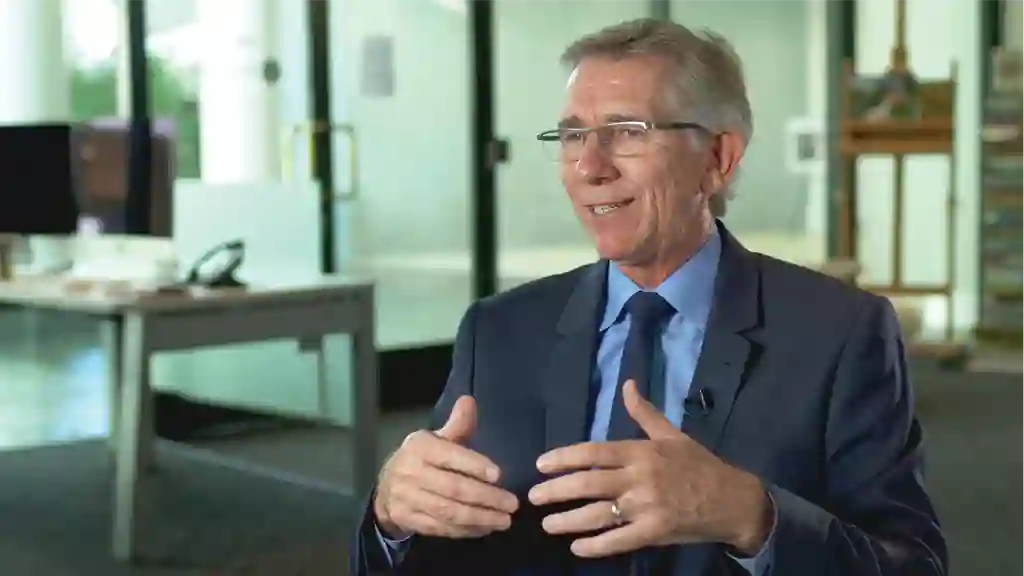The financial advice industry has a dark secret -- one that costs global investors dearly every year, according to Mark Hebner, president and founder of Index Fund Advisors.
"Active investment strategies of stock picking, market timing and manager selection do not work," he says. "Investors are better off passively investing their money in risk-appropriate portfolios of index funds."
Active management is a "dubious fact" that Hebner says ignores research dating back to a turn-of-the-century research paper titled The Theory of Speculation by French mathematician Louis Bachelier. "Since then, hundreds of academic studies have supported his findings," says Hebner.
Unfortunately, he sees too few investors paying attention to academics and Nobel Laureates who find that investment managers haven't beaten markets. "Americans work hard and many of us work far more hours to meet our current needs and secure our retirement," says the author and investment advisor.
Rarely in the course of such a frenetic pace, however, does Hebner find savers taking enough time to learn how to properly invest their hard-earned money. "I was one of those people," says Hebner.
After starting a successful health care company right out of college, he sold his stake at age 32. "Without giving it a second thought, I deposited that money with a big-name brokerage firm," says Hebner.
Not until a widowed friend asked for help in getting a handle on her finances did he come to realize how much investment management relied on speculation rather than a quantitative, evidenced-based analytical process to construct robust long-term portfolios.
As Hebner writes in his seminal book, "Index Funds: The 12-Step Recovery Program for Active Investors," such research helped him to uncover "an ugly fact" about his own portfolio. His lack of understanding of how markets worked had cost him a substantial amount of money.
In building up a personal library that currently includes more than 2,500 financial books dating back to 1648, he reached an epiphany: "My time spent trying to beat the market had been wasted and was a very expensive lesson."
In 1999, Hebner set out to help other investors avoid making the same mistakes by creating an investment advice firm that avoided the "dark secret of active management" and focused on a fiduciary standard of care for its clients. What follows is a question-and-answer session with a longtime and vocal advocate for passive investing.
Q: Who is your core or 'bread and butter' type of investor, so to speak?
A: A typical client at IFA is someone who we like to refer to as intellectually curious.
Q: In what sense?
A: When you visit IFA.com, you'll experience a virtual cornucopia of historical market data and an artistic presentation of an evidence-based investor education. This includes articles, charts, videos, surveys, calculators and index portfolio data spanning decades. Investors who really appreciate this kind of information are often engineers, doctors, lawyers, educators and individuals from similar occupations. After better understanding our content, many of our clients over the years have told us that they've started educating their relatives and friends about the benefits of a passive investment strategy. That is helping us to educate a whole new generation of investors.
Q: The long-term relationship between the risk-and-return of investments seems to be a specific area of focus at IFA. Where do you get all of this data and why is it important to investors?
A: We have constructed our own historic index data from multiple sources that allows us to characterize risk-and-return patterns of monthly returns for more than 20 indexes that go back decades. The risk is a measure of the volatility of returns over various periods. With a large sample size of market returns, you can properly visualize and quantify the historical characteristics of investments such as the highest, lowest, average and range of returns in multiple time periods. All of this can be displayed in detail on the web in colorful and interactive charts and graphs.
Q: How does this data lead you to the conclusion that passive investing through index funds is the best way to increase your long-term wealth?
A: We think passive investing gives investors the best chance to generate the highest expected return over time, net of fees. And the primary reason for this is that using index data, you actually have a big enough data set from which to draw these conclusions. That's opposed to a lack of data in other (active) investment strategies. For example, our research indicates it takes about 150 years of monitoring performance to statistically prove that a typical active mutual fund manager was skillful rather than just lucky. I should point out that we explain this calculation on our website by looking at the average return of managers over their benchmarks and the variability of those returns.
Q: Do you see any new areas of increased interest in your work?
A: Since our inception, IFA has acted as fiduciaries for all types of clients. That word, fiduciary, has become an especially important concept with corporate retirement plan sponsors in recent years. So, our investment advice is highly aligned with the Department of Labor's goal of requiring fiduciary advice in 401(k) and related retirement plans. As a result, today we work with more than 60 different retirement plans. Those include both for-profit and nonprofit organizations.
Q: Why do people need to work with an investment professional?
A: Studies about working with a passive advisor show that the value of such advice exceeds the cost. As the saying goes, "it's unwise to pay too much, but it's worse to pay too little."
Q: You seem to devote much of IFA's resources to investor education. Why do you do that?
A: We have observed that the misbehavior of investors contributes to significant reductions in their ability to capture returns that markets have to offer. The antidote to investment misbehavior is education. The goal of our site is to help us to work with clients in sharpening their financial skills. We think it's important to publish our articles and video content online for everyone to view, which furthers our mission of changing the way the world invests.
This is not to be construed as an offer, solicitation, recommendation, or endorsement of any particular security, product or service. There is no guarantee investment strategies will be successful. Investing involves risks, including possible loss of principal. IFA Index Portfolios are recommended based on an investor's risk capacity, which considers their time horizon, attitude towards risk, net worth, income, and investment knowledge. Take the IFA Risk Capacity Survey (www.ifa.com/survey) to determine which portfolio captures the right mix of stock and bond funds best suited to you. For more information about Index Fund Advisors, Inc, please review our brochure at https://www.adviserinfo.sec.gov/ or visit www.ifa.com.















